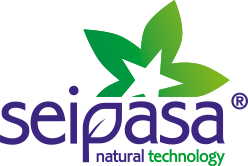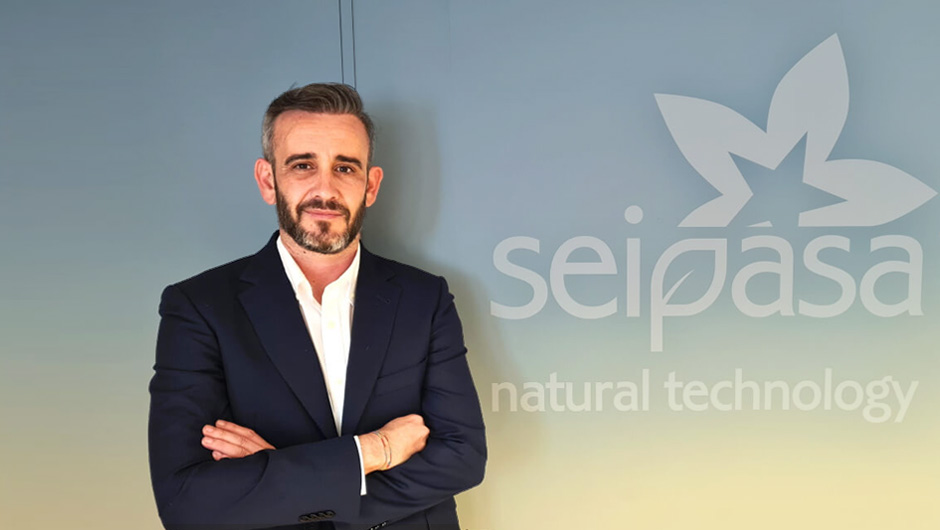Seipasa has obtained the extension of its Pirecris bioinsecticide label in Portugal. The company maintains its firm commitment to provide Portuguese producers with effective, innovative, cost-effective solutions for a crop that is steadily gaining in importance in this country. We analyze the keys to the product and its future prospects in this interview with Pepe Martínez, director of the company's business unit in Europe.
1.- To what extent does this pest pose a threat for berry producers?
The Drosophila suzukii insect can be included in what we commonly term fruit fly. Within the fruit fly family there are some species that have a great economic impact on crops, and this is the case with this particular one due to the damage it causes. Until fairly recently, these insects did not have a significant impact on berries, but this situation changed with the arrival of the Drosophila suzukii or spotted wing drosophila.
It is a relatively recent crop pest, in fact, the first infestations are thought to have occurred in 2012 or 2013 in southern Portugal and the region of Huelva. At that moment, when we knew almost nothing about its behaviour, it caused losses, which in some cases, affected up to 100% of the blueberry or raspberry crops. It has subsequently spread to other crops such as cherries, grapevines, and some stone fruits.
2. What damage does Drosophila cause to crops?
This type of pest pierces the skin of healthy fruit to deposit a clutch of eggs which then evolve and totally damage the fruit. And moreover, once the fruit has been pierced there is also a high risk of it falling prey to other diseases, which can cause the loss of the fruit.
3. What are the key aspects of Pirecris for controlling this pest?
Pirecris is a biological solution offering maximum efficacy. It is a powerful, effective tool for the control of Drosophila suzukii in berries. I believe I am right in stating that Pirecris is the solution that berry producers have been waiting for to fight this pest. And it performs this function in a segment, that of insecticidal products, in which there are very few tools for the direct, authorised control of this pest.
In so far as chemically synthesised solutions are concerned there are some exceptional uses, but the range is getting increasingly smaller due to all that is involved in residue management. In Seipasa's case, the fact that Pirecris has obtained phytosanitary registration for its use to combat Drosophila suzukii in berries, is extremely important as it is backed by the efficacy, reliability, and soundness of the product itself, which has a very extensive crop label and authorised phytosanitary registration in different countries.
Pirecris has a short pre-harvest interval which, in the case of berries provides a differentiating advantage, as we are talking about crops that are harvested almost on a daily basis.
4. How can Pirecris be included in biological pest control strategies or IPM programmes?
Pirecris provides a powerful insecticidal shock effect. It acts quickly to reduce and control insect populations when these pests appear. Control solutions such as Pirecris must also be used together with monitoring tools since Drosophila suzukii is a pest with a very short life cycle that, in favourable conditions, can grow explosively. It is also important to implement all kinds of practices that are part of farming culture, such as controlling crop density, managing postharvest residues or destroying any fruit that may be infected.
5. What does this extension of the label mean for the company?
Firstly, it's the sense of satisfaction and knowing that we have fulfilled our mission, which is none other than to provide Portuguese farmers with effective, sustainable, cost-effective solutions for the control of pests and diseases that have a high impact. In the specific case of control of Drosophila suzukii in berries, Pirecris has undergone prior testing with Portugal's leading producers and producer associations, obtaining excellent results. All the forecasts are highly favourable due to the significant increase in berry-growing in Portugal.
6. Let's talk about Seipasa's presence in Portugal
Portugal and Spain have very close ties both from a geographical and cultural point of view. And this is something that also occurs in berry growing, which is very strongly established in the province of Huelva and in southern Portugal. Four years ago, Seipasa entered into a commercial relationship with the Portuguese company Jovagro for the distribution of our products in Portugal. Jovagro is a young, dynamic company with which we share values, projects and an innovative vision of agriculture.
Right from the start Jovagro has shown its commitment to offering the market solutions of botanical and microbiological origin as an alternative to traditional chemically synthesised products and we cooperate very actively in sharing knowledge and providing high value-added, cost-effective solutions for Portuguese agriculture.



